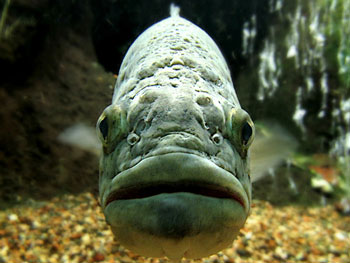Bent-Butt vs. Straight-Butt Fishing Rods
March 12, 2010Testimonial
April 29, 2010DOHA, Qatar — A proposal to ban the export of Atlantic bluefin tuna prized in sushi has been rejected by a U.N. wildlife meeting.
Thursday’s decision occurred after Japan, Canada and scores of poor nations opposed the measure on the grounds that it would devastate fishing economies.
Monaco introduced the proposal at the 175-nation Convention on International Trade in Endangered Species, or CITES. It argued that extreme measures are necessary because the stocks have fallen by 75 percent and current managing agencies have done nothing to rebuild the stocks.
Only the United States, Norway and Kenya supported the proposal outright. The European Union asked that implementation be delayed until May 2011 to give authorities to respond to concerns about overfishing.
THIS IS A BREAKING NEWS UPDATE. Check back soon for further information. AP’s earlier story is below.
DOHA, Qatar (AP) — A U.S.-backed proposal to ban the international trade of polar bear skins, teeth and claws was defeated Thursday at a U.N. wildlife meeting over concerns it would hurt indigenous economies and arguments the practice didn’t pose a significant threat to the animals.
The Americans argued at the 175-nation Convention on International Trade in Endangered Species, or CITES, that the sale of polar bears skins is compounding the loss of the animals’ sea ice habitat due to climate change. There are projections that the bear’s numbers, which are estimated at 20,000 to 25,000, could decline by two-thirds due by 2050 due to habitat loss in the Arctic.
“We’re disappointed,” said Jane Lyder, the Department of Interior’s deputy assistant secretary for fish and wildlife and parks. “But we understand that CITES is still trying to understand how to incorporate climate change into its decision making.”
Canada, along with Norway and Greenland, led the opposition to the U.S. proposal. They said the threat from trade was minimal and the hunting done by Aboriginal communities was critical to their economies. Only 2 percent of Canadian polar bears are internationally traded and the country strictly manages the commerce, Canada said.
“There is no doubt that action must continue to ensure the conservation of polar bears. Canada’s goal is long term survival of polar bears,” Canadian representative Basile Van Havre said. “But Canada does not think the proposal is supported by facts.”
Frank Pokiak, an indigenous leader from Canada, said communities in the Arctic have hunted bears for generations, mostly for meat for food and pelts for clothing and shelter. He said they hunt them in a sustainable way and would continue doing so with or without an international ban.
“We have always cared for land and the wildlife because we have a lot to lose,” Pokiak told delegates. “If it wasn’t for polar bears and other wildlife that we harvest, we wouldn’t exist today.”
The big white bear, the world’s largest land meat-eater, “nanuq” to the Inuit, may be uniquely susceptible to climate change as rising temperatures fast shrink its habitat, the Arctic sea ice.
Many bears spend their whole lives on the ice, mating, giving birth and hunting for their main prey, the ringed seal. But Arctic summers may be almost free of sea ice within 30 years, the U.S. National Oceanic and Atmospheric Administration predicted last April.
Data available on polar bear trade shows that since the early 1990s the market for polar bear carcasses and parts has increased. From 1992 to 2006, approximately 31,294 live polar bears, carcasses or parts were exported to 73 different countries, according to data collected by the Convention on International Trade in Endangered Species.
Skins are the most popular export item, and Canada is the largest commercial exporter.
In May 2008, the U.S. classified the polar bear as a threatened species, the first with its survival at risk due to global warming. The determination made all but subsistence hunting illegal.
Conservationists criticized the vote rejecting a broader, international ban, accusing countries of ignoring the plight of a bear that for many has become the poster child for global warming.
“CITES parties have turned their backs on this iconic species,” said the International Fund for Animal Welfare’s Jeff Flocken, whose group is part of a polar bear coalition which several environmental groups.
“Polar bears clearly meet the criteria for an uplisting to Appendix I,” he said, referring to the designation that was proposed by the United States. “Yet parties are using the fact that climate change poses to the greater long-term threat to the species as an excuse to do nothing about immediate threats hastening their decline.”
Andrew Wetzler, director of NRDC’s Wildlife Conservation Project, called the vote “a setback” in what otherwise has been a successful effort to protect the bear.
“It keeps some the most important populations of polar bears squarely in the crosshairs,” he said. “We will continue work to find a new way to protect polar bears from this unsustainable hunt.”

